Looking for simple and easy ways for how to soundproof a hollow door? Well, you’ve come to the right place. Many people have hollow doors in their homes, but few know how to soundproof them. This blog post will provide the information you need to do just that!
From adding insulation panels to installing a door sweep, there’s more than one way to make a big difference with your home’s noise level. You’ll be able to enjoy peace and quiet without needing earplugs or to replace the door completely.
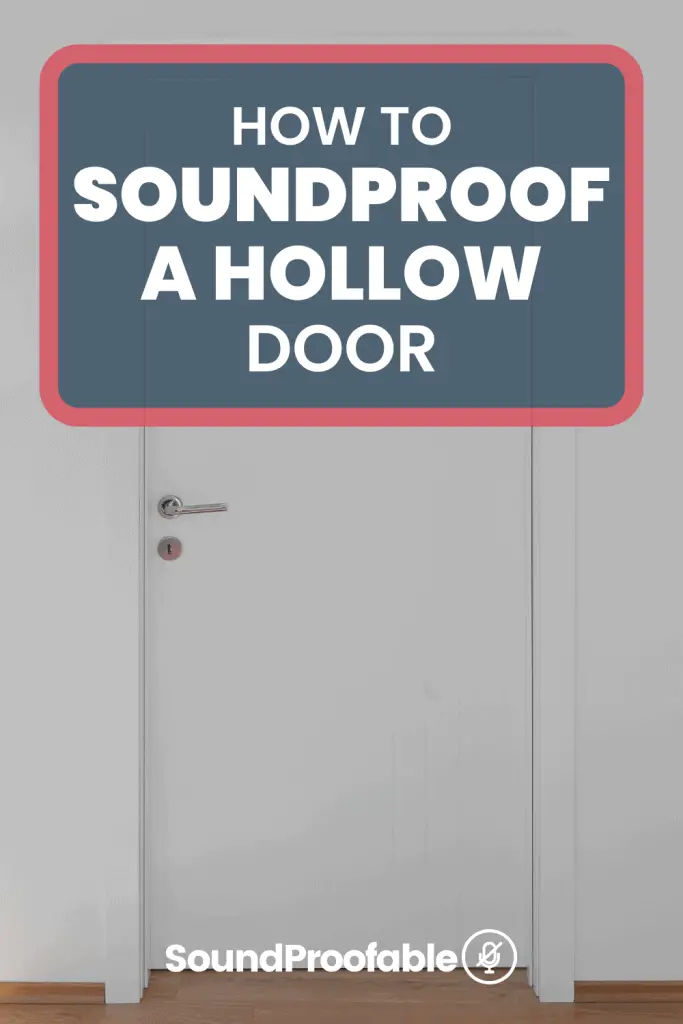
1. Use Soundproofing Blankets
The first thing you’ll want to consider is adding a soundproofing blanket to your hollow door. This blanket will help deaden the sound that comes through the door, so you and your family can enjoy peace and quiet.
They also work as an added barrier that can absorb some of the noise that makes its way through the door and keep sound in (or out).
There are lots of types of soundproofing blankets that you can choose from. It doesn’t really matter which one you pick, but the thicker the better. We like these ones from AudioMute which are not expensive and do the job well. Or for a cheaper option try these.
You can install them either temporarily or permanently by hanging them on either side of the door. Just try to make sure the entire door is covered for the best results.
2. Use Soundproofing Curtains
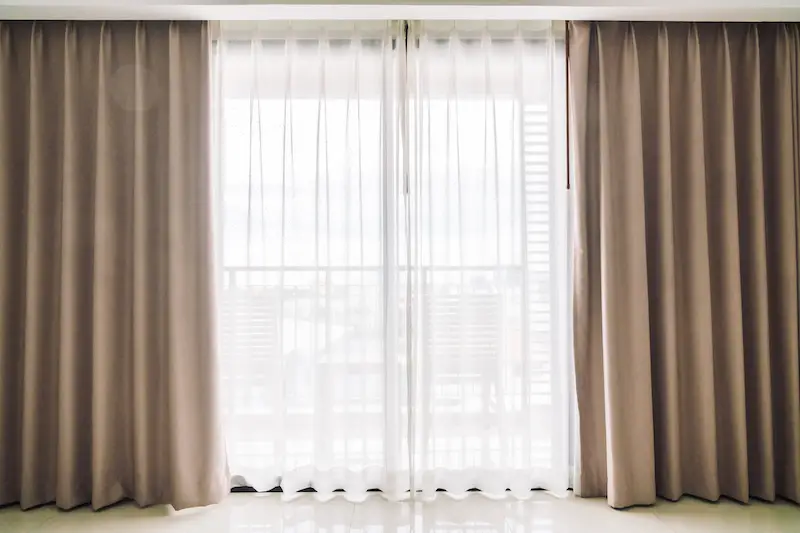
Another great way to soundproof a hollow door is by hanging inexpensive, soundproof curtains. These curtains will help block out noise and keep it from traveling through the door, even when it’s left open.
Once again, you can hang them either temporarily or permanently. If you choose to hang them permanently, make sure that they’re thick. The thicker they are the better as they’ll be at soaking up the sounds that come through your hollow door from outside.
Lots of people like to install a curtain rail if they plan on hanging their curtains permanently. It isn’t necessary, but it will make the best use of your space and let you get the most out of your curtains.
If you’re looking for a good inexpensive option check out these soundproof curtains from Nicetown which are thick, sound absorbent, and won’t break the bank.
3. Add Acoustic Foam Panels
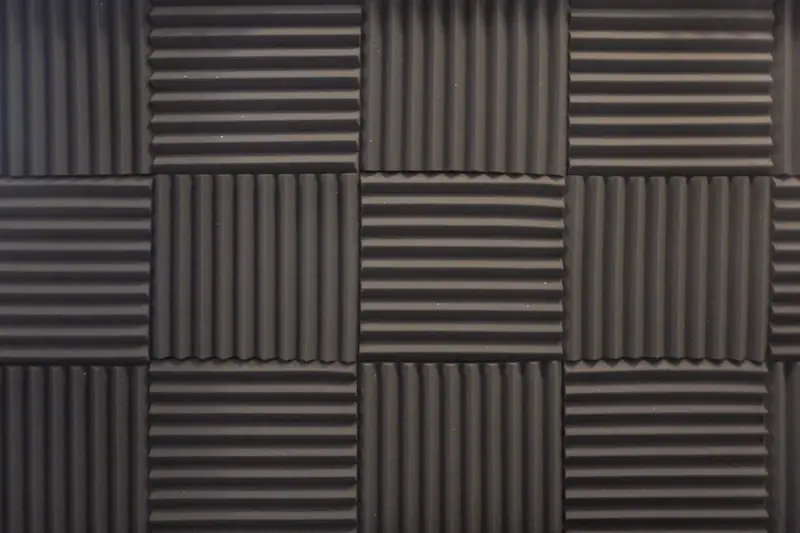
The next easy way to soundproof a hollow door is to add acoustic foam panels to either side. These are simple to install and they work well at absorbing and blocking sound from both sides.
Foam panels are used a lot in soundproofing rooms and are a very inexpensive option which makes them a great option for those on a budget. Simply cut them to size and stick them onto the inside of your hollow door.
These panels are a good option for those who don’t want to spend a lot on their soundproofing project, but still want to do something to block out neighborhood noise or other loud sounds that come through the door.
These acoustic foam panels are very affordable and work well for most people’s needs. They’re relatively thick, easy to install, and will help reduce noise.
4. Cover the Gaps Around the Door Frame
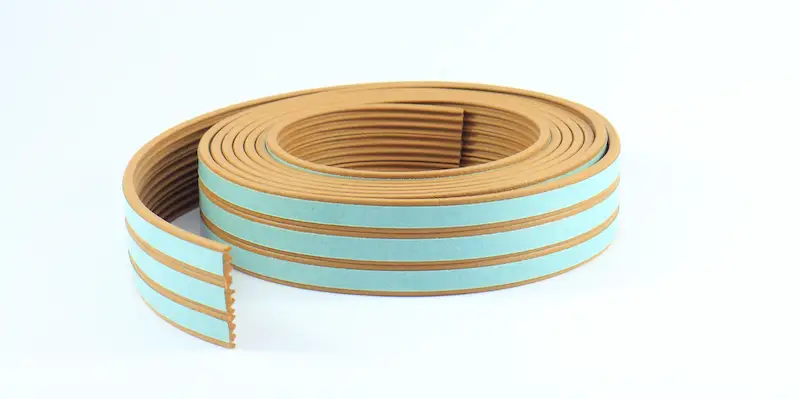
The next thing to look at when you’re trying to soundproof a hollow door is the gaps around the door frame. You want to ensure that the door fits snugly and seals well all the way around.
If there are any gaps or if the frame is loose, no matter how many blankets or acoustic panels you add it’s still going to be pretty easy for noise to sneak through.
A common way to fix this is by using either foam or rubber weather stripping to help fill in the gaps. Simply stick it to the door frame all the way around. It doesn’t have to be perfect, just make sure that it approximates the space between your door frame and the hollow door itself.
Weatherstripping is pretty inexpensive and you can pick some up for very cheap like this option here. It’s also very easy to install, so don’t worry about breaking a sweat trying to get this done if you’re not experienced with home projects.
5. Cover the Gap Below the Door
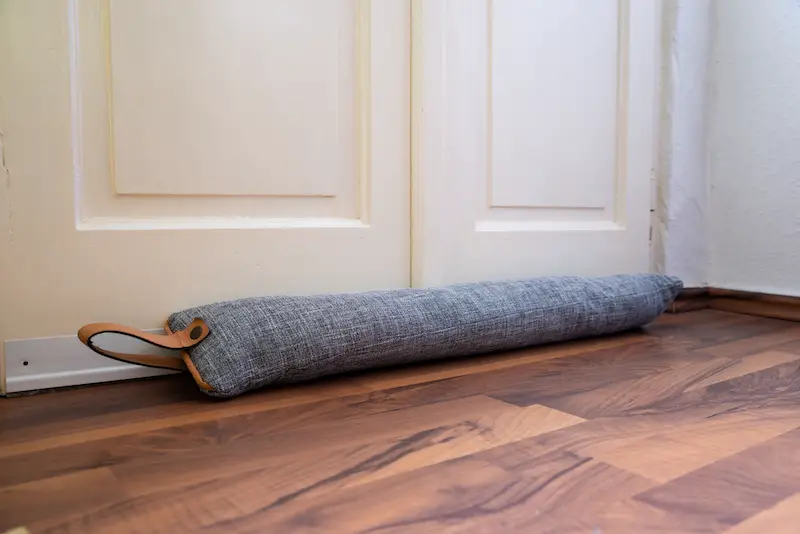
Although the rubber weather stripping is good for around the door frame, below the door is a different story. You’ll want something that’s thicker and a little sturdier to fill in the gap here.
The most popular option is to purchase a door sweep or door draft stopper. These are usually made of rubber and are stuck to the bottom of the door so they cover the gap.
They’re affordable, easy to install, and will do a good job at not only blocking out any noise that’s coming from underneath the door but also help to keep out drafts, dust, and even pesky rodents!
If you’re looking for a good option check out this one which is made of fabric and slots easily under the door.
6. Use a Door Rug
As well as soundproofing the door and frame, we can also use a door rug to help reduce sound from coming in through your hollow door.
Any steps we can take to absorb the sound before it reaches the door will work in our favor and help to reduce the amount of sound passing through the door.
A door rug is another great option for those who want to do their soundproofing on a budget because they’re so inexpensive. They also come in lots of different colors, patterns, sizes, and designs meaning there’s something for everyone!
When choosing a rug or mat to place in front of your door, remember the thicker it is the more sound it will absorb. Something like this one is a good option that won’t break the bank and will help to absorb and deaden more of the sound.
7. Replace the Hollow Door With a Solid Core one
If you’ve tried everything, but there’s still too much noise coming through your hollow door then it might be time to think about replacing it with a solid core one.
Due to how they’re made, solid core doors help to add more of a barrier and so reduce the amount of noise that gets through. They are a little more expensive than hollow doors, but you’ll often find it’s money well spent!
Summing up
As you can see, there are many things you can do yourself to help soundproof a hollow door.
It doesn’t have to be complicated or expensive, just some basic steps that will make your home a little more quiet and peaceful.
With all the different methods available, you’re guaranteed to find something that works!
Good luck and happy soundproofing.
